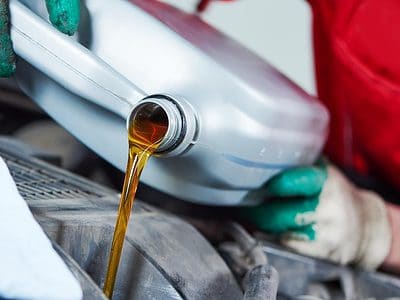
High-mileage oil is often touted as the solution to high-mileage engine problems. From rejuvenating seals to clearing sludge, it’s expected to slow down your engine’s deterioration rate.
But when should you actually switch to one of the best high-mileage oils?
This article will tell you all you need to know about this supposed miracle fluid and exactly when to use high-mileage oil.
What Is High Mileage Oil and How Does It Work?
As the name suggests, high mileage oil is oil for engines that have traveled many miles, usually more than 75,000 miles on the odometer.
It is specially formulated to care for older engines. It contains antioxidants, detergents, viscosity modifiers, and friction-reducing additives that won’t diminish with time. It also improves your car engine’s seals.
When to Use High-Mileage Oil
Once your car clocks 75,000 miles on the road, it’s time to consider switching to a high-mileage oil.
Just make sure to check your car’s powertrain warranty, as some reach 100,000 miles. In that case, keep using the manufacturer’s recommended oil until the warranty expires.
Differences Between High-Mileage Oils
It isn’t easy to make out the differences between high-mileage oils. But that doesn’t mean they’re all the same. While oils from various manufacturers may share additives, the key difference is their concentrations, which are very likely different.
Even more so when you consider that the formulations of most motor oils are regarded as “trade secrets.” In other words, the chances of two producers using the exact amounts and quantities of additives are slim.
Of course, the fact that additives are kept a secret means that the information is not readily available to the general public.
However, you can reference safety data sheets for various additive percentages. Just do so with a pinch of salt, as the listed additives may not be fully included since these sources are not responsible for enforcing any rules.
How Does My Engine Benefit From High Mileage Oil?
With time, your car engine becomes prone to damage—major and minor. Moving parts are bound to wear down, requiring more lubrication than before. This is where high-mileage oils come in.
High-mileage oils are infused with a distinctive blend of conditioning agents and additives you won’t find in regular oils. These additives help to:
- Slow down leaks by conditioning engine seals
- Break up and dissolving slush left behind by other oils
- Improve the productivity of your fuel
- Reduce oil loss caused by burn off
- Reduce general wear and tear in older engines
Using a high-mileage oil is similar to applying lotion on dry and scaly hands. You could almost say it soothes cracked, frail engine pieces, adding flexibility to the areas that need it the most.
How Often Should Oil in High Mileage Engines Be Changed?
While it’s recommended to change the oil of a new car every 10,000 to 15,000 miles, older cars are not so clear cut.
Some recommend frequently changing, as the older engine is less likely to tolerate the effects. Others say it doesn’t matter as the engine health will continue to deteriorate anyway.
But it’s more nuanced than that.
If you have a car that has covered about 150,000 to 200,000 miles, you should probably look to change its oil every 5,000 to 7,500 miles or about five to eight months.
However, feel free to modify this based on how often and how far you drive. And if you use a high mileage oil, you can expect it to hold up longer, especially if you have a good oil filter.
On the contrary, consider an earlier oil change for your high-mileage engine in the following situations:
- Your engine is losing pressure
- Your engine requires regular oil top-ups as it burns a lot
- Your engine is using sub-par filters
Using Synthetic Oil in High Mileage Engines
Even amongst high mileage oils, the synthetic ones are better—albeit more expensive—than the conventional options.
In most motor oils, the base oil makes up about 80% of the composition, with additives making up the remaining 20%. In synthetic products, the base oil is chemically designed to have more uniform properties.
This is not the case in its conventional counterparts, as the molecules in their base oils tend to differ in shapes and sizes—even in impurity levels.
Therefore, a shift to a cleaner product boasting higher quality is very logical. It has become the norm in the automotive world, with around 70% of new cars using synthetic motor oils to help prolong performance.
Should High Mileage Oil be Used in New Vehicles
You shouldn’t use high-mileage oil for your new vehicle because it doesn’t need it. Note that it won’t damage your car’s engine in any way.
But your new engine won’t reap any of the benefits. Plus, it’ll likely be more expensive, too. You’re better off following the instructions in your car owner’s manual until your warranty expires.
Protect Your High Mileage Engine
You can do many things to keep your engine going for a long time—checking your oil and changing it when due, observing for leaks, inspecting the belts, etc. But once it reaches 75,000 miles and is outside the warranty period, you can add “switching to a high mileage oil” to that list.
















